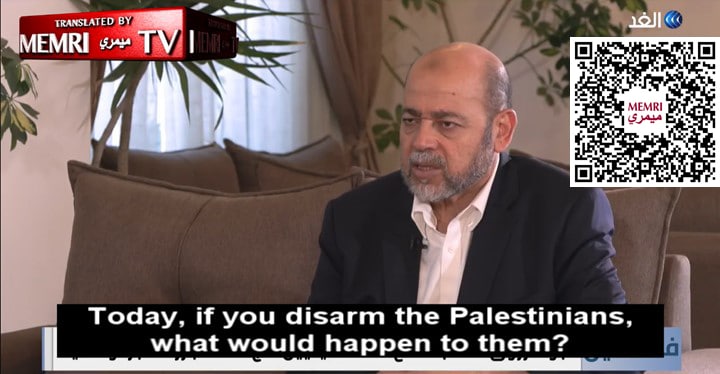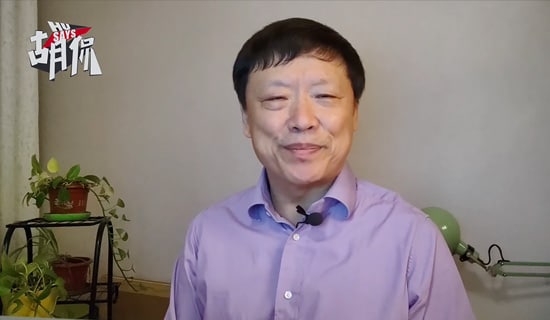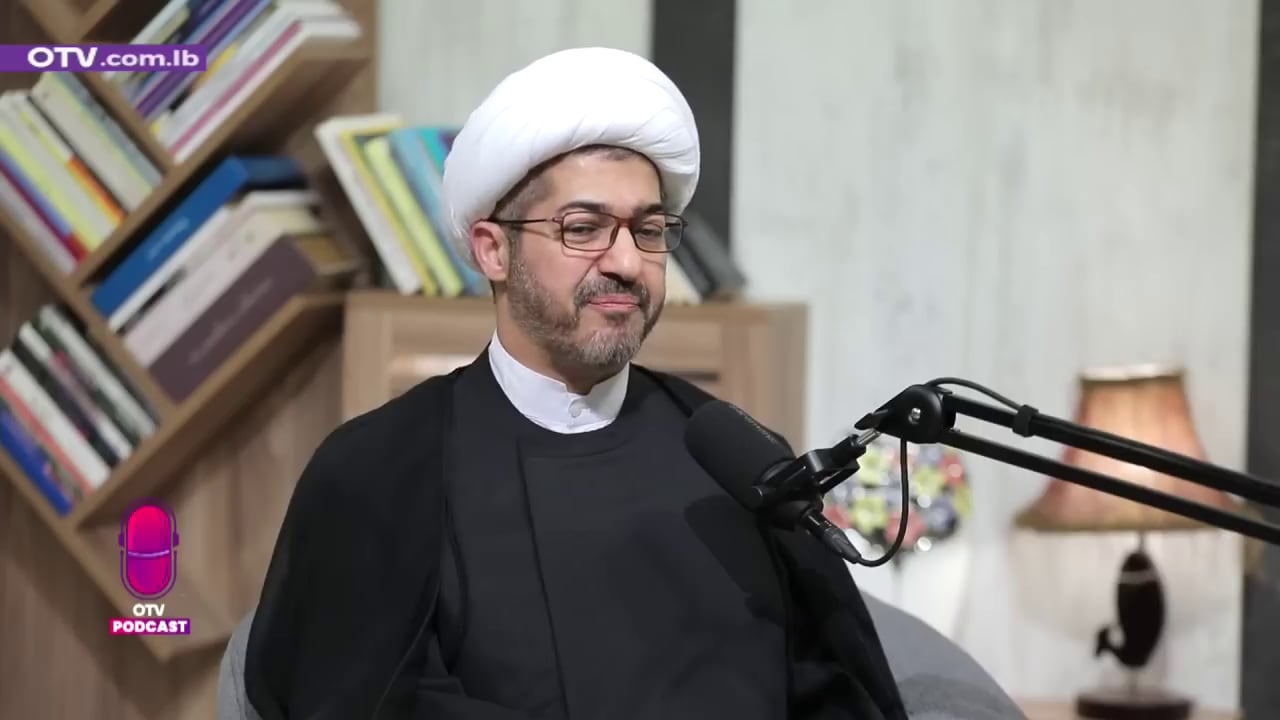
Mousa Abu Marzouk, head of Hamas's international relations discussed in an August 8, 2023 interview that aired on Alghad TV (UAE/Egypt) Hamas's position regarding the PLO, a Palestinian state and its borders, armed resistance, and the Palestinian refugee camps in Lebanon. He said that Hamas is not committed to "international legitimacy" but that it is committed to international resolutions that "agree with the rights" of Palestinians. Abu Marzouk continued to say that the PLO is the only "legitimate Palestinian representative" and that it must be rebuilt in a manner that would allow all sectors to take part in it. He said that the Gaza Strip is "paying the price" of keeping the West Bank in Palestinian hands and that while Hamas does accept a Palestinian state within the 1967 borders, its people want a state on all of Palestine, that would stretch from the Jordan River to the Mediterranean Sea and from Rosh HaNikra to Aqaba and Rafah. Abu Marzouk added that Hamas needs the civilian population's support in order to "wage war." He said that some of Lebanon's sects hate the Palestinians, and he asked what would happen to the Palestinians in Lebanon's refugee camps if their weapons were taken away from them, in light of the history of Sabra and Shatila.
Mousa Abu Marzouk: "Hamas has expressed its position clearly. We are not committed to international legitimacy. We are committed to the international resolutions that agree with the rights of our people, and do not diminish their right of return and liberation. To this day, we accept that the PLO is the only legitimate [Palestinian representative].
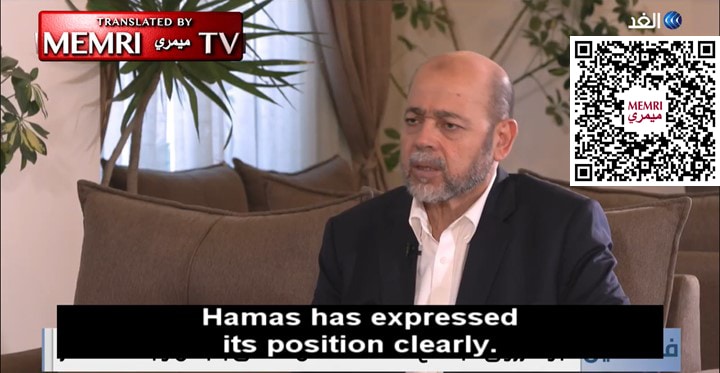
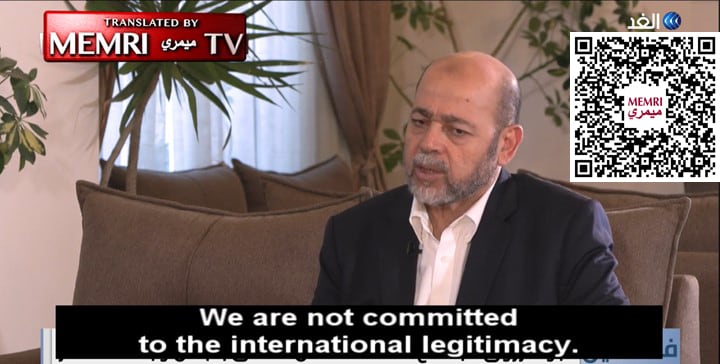
"Let me reiterate, we still accept the PLO as the one legitimate representative, but on the condition that it is rebuilt, so that all sectors of the Palestinian people can be a part of it. If the PLO remains closed, that will be another matter. Absolutely. We cannot tolerate this any longer. We have agreed to rebuild the PLO since 2005. The situation cannot remain as it is, and people cannot remain deaf and blind to this reality.
[...]
"We all want to establish a state. I swear, the head of the State Department's Bureau of Near East Affairs came to us, with a plan to turn the Gaza Strip into the Palestinian State, after adding 700 square km to its territory. His plan was to double the territory of the Gaza Strip. He wanted to meet with us, but we refused to meet or even talk with him.
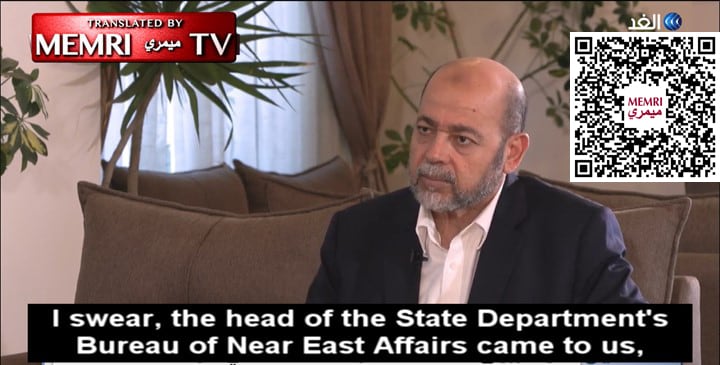
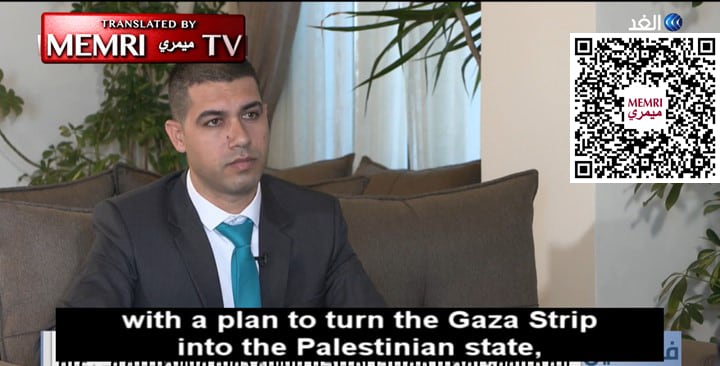
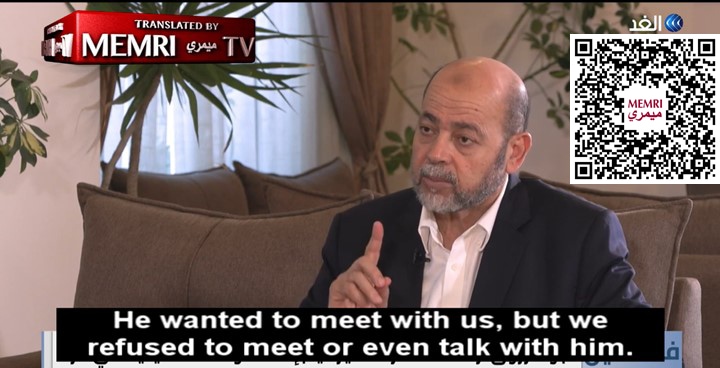
"We are [accused] of trying to build a state in the Gaza Strip? What is it? One percent of the territory of Palestine? For one percent of the territory of Palestine, we would give up on the West Bank? By the way, all price we are paying in the Gaza Strip is so that [the Palestinians] can keep the West Bank.

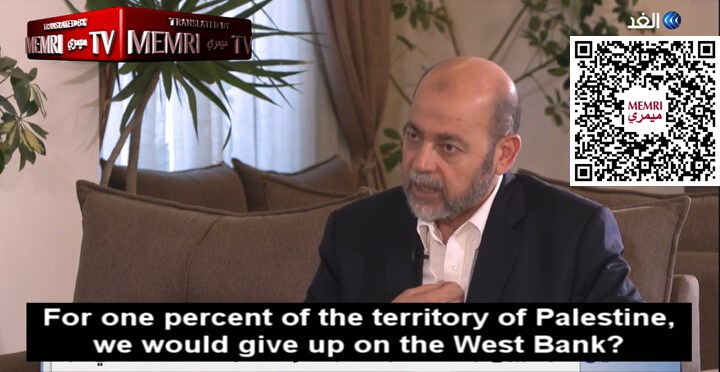
"In addition, we do not stop at the West Bank and the Gaza Strip. All of Palestine should be the land of the Palestinians.
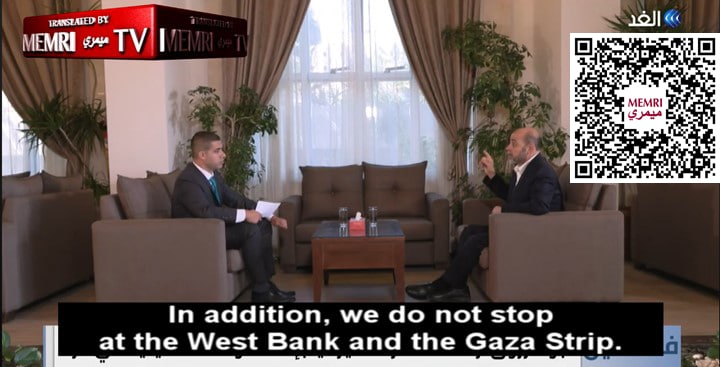
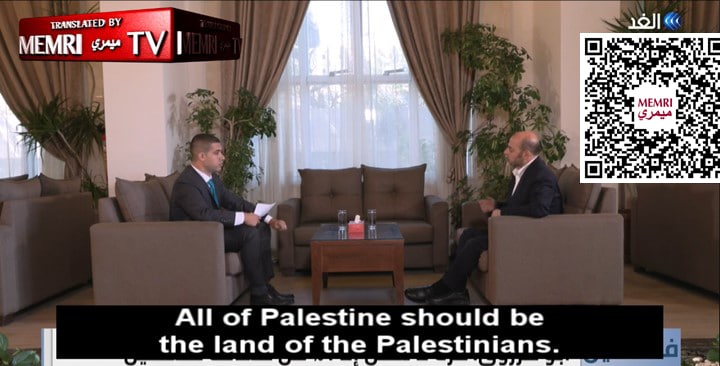
"Throughout the history of Hamas, we never used the phrase 'Palestinian state.' In our charter, we said that we accept what the Palestinian factions agree on and the Palestinian consensus of establishing a state within the 1967 borders. But we did not say that a Palestinian state within the 1967 borders is our position, because we believe that this is not enough for our people. Our people want their state to stretch from the [Jordan] River to the [Mediterranean] Sea, and from Rosh HaNikra to Aqaba and Rafah. This is the territory of Palestine that we want.
[...]
"Our decision whether to go into battle is not emotional, according to the desires of this or that group. These battles must be carefully calculated. We are resistance movements, not armies facing other armies. We are resistance movements, and we must calculate our steps carefully. The confrontation and resistance must remain open all the time – it must not be limited to a specific time or place. This is our entire enterprise, and this is what we must do.
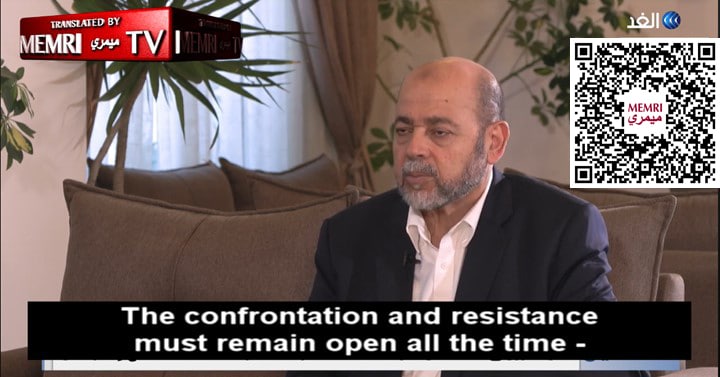
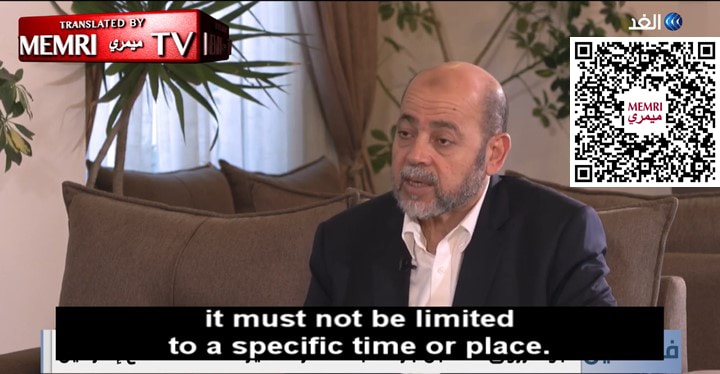
"However, the resistance must take its principles and capabilities into consideration. In other words, the resistance under the occupation must not be limited to specific territory, because then, it will be easier to eliminate it. It must also not flaunt its force, because this would make targeting easy, especially under the occupation. We must take into account the capabilities of the Palestinians, and the population's willingness to wage war and make sacrifices.
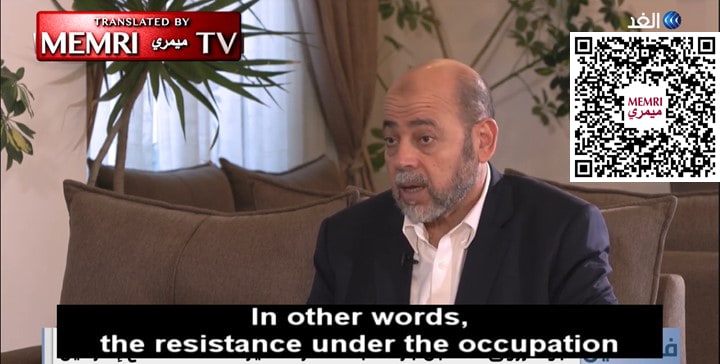
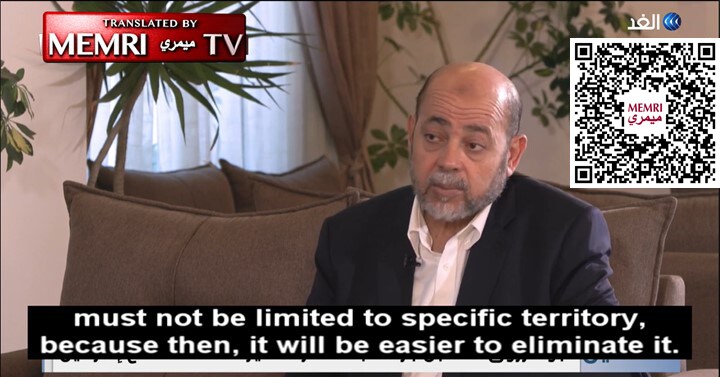
"Today, if we wage a war that is not desired by our people, or one that our people cannot bear, this would be a losing battle even before it started. We want the population to support us, so that when we go to war, we can expect the outcome to be in our favor.
[...]
"When the weapons of the Palestinians in the refugee camps in Lebanon were taken away, because of the sectarian circumstances of Lebanon, the Sabra and Shatila massacre took place. You know that tens of thousands of Palestinians were slaughtered with axes. If they had their weapons, their would not have been killed like this. The hatred towards the Palestinians among some sects is unheard of.
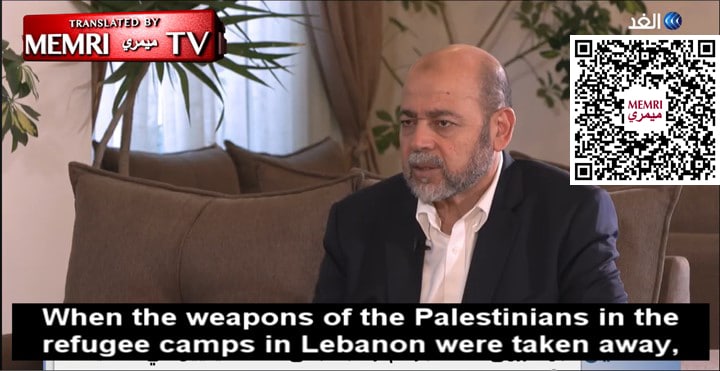
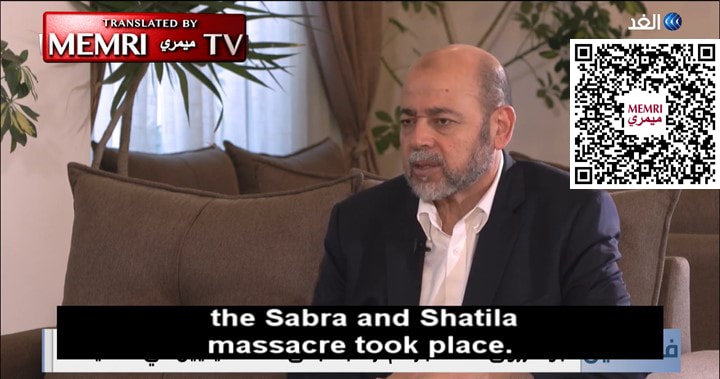
"So who would benefit from the suggested disarmament of the Palestinians? There are big political plots to expel the Palestinians from Lebanon, even though they are guests there. Today, if you disarm the Palestinians, what will happen to them? You know the history of the Palestinian people. Lebanon is the only place where Palestinian refugee camps were eliminated – Karantina, Tel al-Zatar, Sabra, Shatila... We are talking about annihilation, not about clashes, like we see today. Therefore, the Palestinians should be aware of what happened in the past, and might repeat itself in the future."
